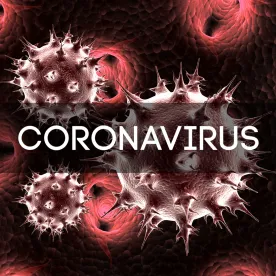In the wake of rising COVID-19 infections, many private companies have donated goods and services, developed testing and diagnostic tests, provided COVID-19 testing support to state and federal governmental entities, and worked to develop antiviral drugs that will be effective against the novel virus. Some of these tests and processes are new and unproven, and the immunities offered by
The Public Readiness and Emergency Preparedness Act (PREP Act) are key to their willingness to continue their efforts to support the COVID-19 response. The PREP Act was enacted by Congress and signed into law by George W. Bush in 2005 in the wake of an avian influenza outbreak. Vaccine manufacturers lobbied for this legislation to preempt state vaccine safety laws in the case of an emergency declaration by the US Department of Health and Human Services (HHS).
The PREP Act authorizes the Secretary of HHS to issue a declaration (PREP Act declaration) that provides immunity from liability (except for willful misconduct) for claims of loss caused by, arising out of, relating to, or resulting from the administration or use of countermeasures to diseases, threats, and conditions determined by the Secretary to constitute a present, or credible risk of a future, public health emergency to entities and individuals involved in the development, manufacture, testing, distribution, administration, and use of such countermeasures. A PREP Act declaration is specifically for the purpose of providing immunity from liability.
PREP Act immunity applies to any “covered person” with respect to all “claims for loss” caused by, arising out of, relating to, or resulting from the “administration” or the “use” of a “covered countermeasure” if a declaration has been issued with respect to that countermeasure.1
Relevant PREP Act Statutory Definitions
Covered Persons are individual persons and entities including, at the Secretary’s discretion, manufacturers, distributors, program planners (i.e., individuals and entities involved in planning and administering programs for the distribution of countermeasures), and qualified persons who prescribe, administer, or dispense countermeasures (i.e., healthcare and other providers). The US officials, agents and employees of any of these entities or persons are also covered persons.2
Activities Covered are the development, manufacture, testing, distribution, administration and use of countermeasures.3
Countermeasures Covered include vaccines, drugs or medical devices to be used against chemical, biological, radiological and nuclear agents of terrorism, epidemics and pandemics.4
Claims for Loss are claims from tort liability except for willful misconduct. PREP Act immunity covers death and physical, mental or emotional injury, illness or disability, and the fear of these conditions. Liability protections
also extend to claims made for medical monitoring as well as loss or damage to property, including business interruption. Claims that have a connection to the development, distribution, administration or use of the covered countermeasure are also potentially included within the scope of PREP Act liability protections.5
Limitations
Immunity from liability under the PREP Act is not available for death or serious physical injury caused by willful misconduct. A “serious physical injury” is one that is life-threatening, or results in or requires medical or surgical intervention to preclude permanent impairment of a body function or results in permanent damage to a body structure. Willful misconduct is misconduct that is greater than any form of recklessness or negligence. It is defined in the PREP Act as an act or failure to act that is taken: 1) intentionally to achieve a wrongful purpose; 2) knowingly without legal or factual justification; and 3) in disregard of a known or obvious risk that is so great as to make it highly probable that the harm will outweigh the benefit. All three of these conditions must be proven with clear and convincing evidence.6 Willful misconduct cannot be found against:
-
a manufacturer or distributor for actions regulated by HHS under the Public Health Service Act or the Federal Food, Drug and Cosmetic Act, if HHS chooses not to take an enforcement action against the manufacturer
or distributor, or if HHS terminates or settles an enforcement action without imposing a criminal, civil, or administrative penalty;7 or
a program planner or qualified person who acts in accordance with applicable directions, guidelines or recommendations issued by HHS regarding administration and use of a countermeasure as long as HHS or the State or local health authority is notified about the serious injury or death within seven days of its discovery.8
Litigation
There are very few reported cases interpreting the PREP Act. The cases below, however, provide insight as to the way in which the PREP Act immunities are applied on the state and federal levels.
In Parker v. St. Lawrence City Public Health Department,9 a parent of a kindergartner who was inoculated for the H1N1 influenza without her parent’s consent, filed a lawsuit in New York state court against the health department that administered the vaccine. The Appellate Division of the Supreme Court of New York held that the lawsuit was preempted by the PREP Act and dismissed the case.
In Kehler v. Hood,10 a patient sued his physician and employer in state court for being vaccinated without his informed consent for the H1N1 influenza. The physician and employer then filed a third-party complaint against the vaccine manufacturer. The vaccine manufacturer removed the case to federal court. The federal court held that the PREP Act barred the claims against the vaccine manufacturer. This ruling divested the federal court of jurisdiction to decide the remaining claims against the physician and employer.
Conversely, in Casabianca v. Mount Sinai Medical Center, Inc.,11 a New York state court held that a hospital’s failure to inoculate the plaintiff for H1N1 influenza was not a covered countermeasure under the PREP Act because the vaccine was never given. Accordingly, the state court concluded that the PREP Act’s immunity provisions did not apply.
-
COVID-19 Emergency Declaration
On March 10, the Secretary of HHS made a public health emergency declaration for COVID-19, which makes the PREP Act’s protections applicable to the COVID-19 pandemic. This declaration was effective February 4 and will continue through October 1, 2024. Under the March 10 declaration, covered countermeasures are any:
antiviral, any other drug, any biologic, any diagnostic, any other device, or any vaccine, used to treat, diagnose, cure, prevent, or mitigate COVID–19, or the transmission of SARS-CoV–2 or a virus mutating therefrom, or any device used in the administration of any such product, and all components and constituent materials of any such product.12
The Advisory Opinion issued by HHS on April 17 and modified on May 19, explained that when considering the terms of the PREP Act and the parameters of the COVID public health declaration in order to meet the definition of a qualified pandemic or epidemic product, a product:
-
must be used for COVID-19; and
-
must be:
a. approved, licensed, or cleared by Food and Drug Administration (FDA);
b. authorized under an Emergency Use Authorization issued by the FDA;
c. described in an Emergency Use Instructions issued by the Centers for Disease Control; or
d. used under either an Investigational New Drug application or an Investigational Device Exemption.13
-
As private companies continue to develop vaccines, tests and other COVID-19 countermeasures, we expect to see further invocation of PREP Act immunities.
Footnotes
1 42 U.S.C. § 247d-6d(a)(1).
2 Id. at (i)(2).
3 Id. at (i)(8).
4 Id. at (i)(1)(7).
5 Id. at (c)(3).
6 Id. at (c)(3).
7 Id. at (a)(4).
8 Id.
9 102 A.D.3d 140 (2012).
10 2012 WL 1945952 (E.D.Mo.).
11 2014 N.Y. Slip Op. 33583 (N.Y. Sup. Ct. 2014).
12 85 Fed. Reg. 15,198,15,202 (March 17, 2020).
13 US Dep’t of Health & Human Services, Advisory Opinion 20-02 (May 19, 2020), available at: https://www.hhs.gov/sites/default/files/advisory-opinion-20-02-hhs-ogc-prep-act.pdf.




 />i
/>i

